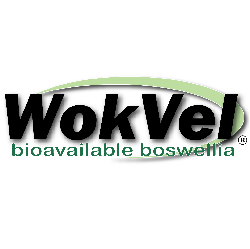LEHVOSS News
- Details
- Written by: Sarah Gates

From the same makers of PureWay‑C®, we are excited to introduce PureWay™ Creatine, the latest addition to our portfolio and a powerful new member of the liposomal PureWay™ range. Recent research1 shows that PureWay™ Creatine delivers superior absorption and intracellular uptake compared to standard creatine, helping athletes maintain peak performance for longer.
Beyond sports, the same research1 demonstrates that PureWay™ Creatine supports overall cellular health, including neuronal cell health, by protecting against oxidative stress and promoting improved cell viability through rapid, targeted delivery. This dual action, enhancing energy and strengthening vital cellular protection, supports muscle performance, and overall cellular function1.
- Details
- Written by: Sarah Gates

As interest grows in GLP‑1 focused products that help manage appetite, more brands are searching for complementary solutions that support nutrition whilst using GLP-1 products as well as long term, efficient, metabolism support.
This is where thyroid health – and PureSea® – plays a key crucial supporting role, as PureSea® offers consistent wholefood nutrition through a natural, clean label, traceable and sustainably sourced seaweed ingredient.
Normal thyroid function1,2 drives the body’s metabolic rate, and this process depends on a reliable supply of iodine. As a natural source of iodine PureSea® helps maintain healthy thyroid hormone production, providing steady metabolic support that fits everyday nutritional needs.
- Details
- Written by: Sarah Gates

Tinofend® is a proprietary Tinospora cordifolia extract standardised to active polysaccharides which stands out as a truly natural solution that supports the body through seasonal challenges, with studies demonstrating its highly beneficial effects on histamine response and immune functions.1,2
According to research1 Tinofend® may help to regulate several immune mediators, whilst also supporting the activation of white blood cells – such as macrophages – which are a crucial part of the body’s immune response. Additionally, this study demonstrated that Tinofend® significantly reduced symptoms of allergic rhinitis after 15 days, with further improvements seen over 30 days. Further research2 found significant improvements in hay fever symptoms compared with placebo. This study also reported reduced eosinophil levels and good overall tolerability.
- Details
- Written by: Sarah Gates

Adding Omega‑3 to tablets has never been easier, thanks to GOtab®, a smart and easy solution offering Omega-3 DHA and EPA in a direct compressible powder for tablet formulations. The proprietary technology developed by Golden Omega®, the leading trusted producer of high‑purity Omega‑3 concentrates allows concentrated EPA and DHA to be incorporated into GOtab®.
In addition, Golden Omega® Fish Oil Concentrates are verified by Orivo as Pure Anchovy from the South Pacific. Such advantages offer consumers a convenient way to enjoy the health benefits of Omega‑3s, while providing the market with stable and reliable solutions that can also be easily combined with other ingredients. Backed by more than 15 years of development, GOtab® powder delivers clear advantages in sensory performance, absorption and stability.
- Details
- Written by: Sarah Gates

As winter fades, many people may feel a natural dip in energy. With its full fatty acid profile, Marine Policosanols and Astaxanthin, bound in a natural wax-ester form, Zooca® Calanus® Oil may support a smoother transition into spring. This sustainable marine oil from Calanus finmarchicus delivers a balanced composition of key nutrients backed by 20+ years of research.
Featured in multiple publications, including eight clinical trials, Zooca® Calanus® Oil supports metabolic health and healthy aging. It provides over 40 fatty acids in their natural wax‑ester form, which research suggests support gentle digestion and efficient absorption, along with Marine Policosanols that support physical performance and a balanced inflammatory response. Together with its natural Astaxanthin content, Zooca® provides a distinctive marine lipid nutrient profile.
- Details
- Written by: Sarah Gates

Univestin® and AmLexin™ work together to deliver a powerful synergy1 for Active‑Aging formulations that offer rapid relief in the short term, and meaningful mobility support over time. This combined approach meets the growing demand for solutions that help consumers stay active, comfortable and confident as they age.
According to research, Univestin® provides fast‑acting support for joint comfort and mobility2, helping users feel improvement within just 3-7 days, while AmLexin™ supports the long‑term preservation of cartilage integrity. Together, they may ease discomfort fast while also helping protect the structural foundation of joint health, making this natural combination especially relevant for active‑aging consumers who want to stay mobile and engaged throughout later life.
- Details
- Written by: Sarah Gates

Research demonstrates that Longvida® Optimized Curcumin® delivers rapid cognitive benefits, with a single 400mg dose improving attention and working memory within one hour in healthy older adults¹. Backed by 11+ human clinical studies, Longvida® is widely recognised as the “Cognitive Curcumin of Choice™”.
Research shows that Longvida® consistently enhances working memory and helps reduce fatigue and stress reactivity2, reinforcing its role in mood and cognitive support.
These findings which are validated through double-blind, placebo-controlled studies, position Longvida® as a clinically backed, bioavailable curcumin option for formulations targeting brain health and healthy aging.
- Details
- Written by: Sarah Gates

Sports recovery is evolving, and science shows the real transformation begins at the cellular level. Research has long shown that OptiMSM®, the leading brand in MSM, supports sports recovery by helping to reduce post-exercise pain and inflammation1 and counteracts oxidative stress2 which are two critical processes that influence muscle repair and immune balance.
Expanding on the research, a new study3 explored how OptiMSM® supports cellular health by examining its impact on immune response gene expression in experienced runners.
Subjects who supplemented with OptiMSM® showed improved antioxidant support and faster recovery, highlighting its role as a methyl donor4 and essential component for cellular function3.
- Details
- Written by: Sarah Gates

Benicaros® is a next-generation precision prebiotic fibre derived from upcycled carrot pomace, designed to train the innate immune system for faster, smarter responses while delivering gut health benefits across diverse microbiomes.
A randomised, double-blind, placebo-controlled study found that Benicaros® boosted immune and antiviral responses after 8 weeks1, with further research indicating benefits in reducing common cold symptoms by up to 33% and shorten duration by up to 3 days2.
Studies also showed Benicaros® outperformed other prebiotic fibres in consistently stimulating beneficial gut microorganisms and metabolites3, regardless of individual microbiome differences.
- Details
- Written by: Sarah Gates

Supporting cellular vitality, maintaining metabolic equilibrium, and promoting longevity are fundamental aims in the development of women's health products. Research shows that these processes are tightly regulated by the thyroid system and are particularly sensitive to hormonal changes across a woman’s lifespan. Watch the new cellular health educational video here!
PureSea® is a gold-standard, sustainable seaweed ingredient range, offering clean-label, natural solutions to support daily energy and metabolic function in women. The key nutrient in PureSea®, iodine, is required for thyroid hormones production. Research1 shows thyroid hormones enable cells to produce ATP, the energy that powers movement, growth, repair, and communication between body systems. T3 (one of the two main thyroid hormones) plays a crucial role in this process.



 From the same makers of
From the same makers of  As interest grows in GLP‑1 focused products that help manage appetite, more brands are searching...
As interest grows in GLP‑1 focused products that help manage appetite, more brands are searching... 
 Adding Omega‑3 to tablets has never been easier, thanks to
Adding Omega‑3 to tablets has never been easier, thanks to  As winter fades, many people may feel a natural dip in energy. With its full fatty acid profile,...
As winter fades, many people may feel a natural dip in energy. With its full fatty acid profile,... 





































